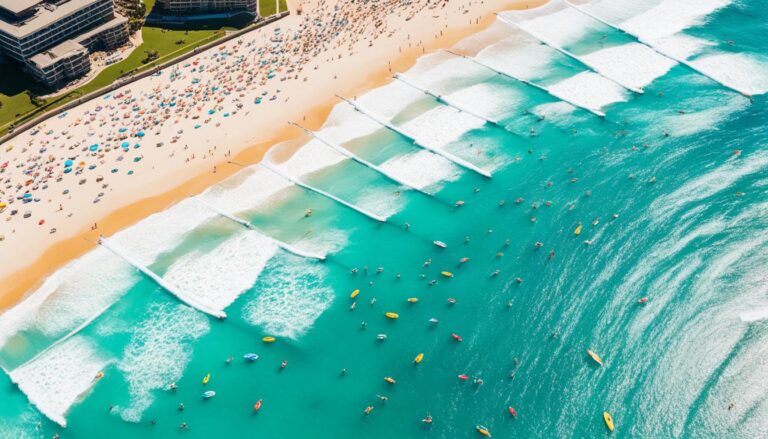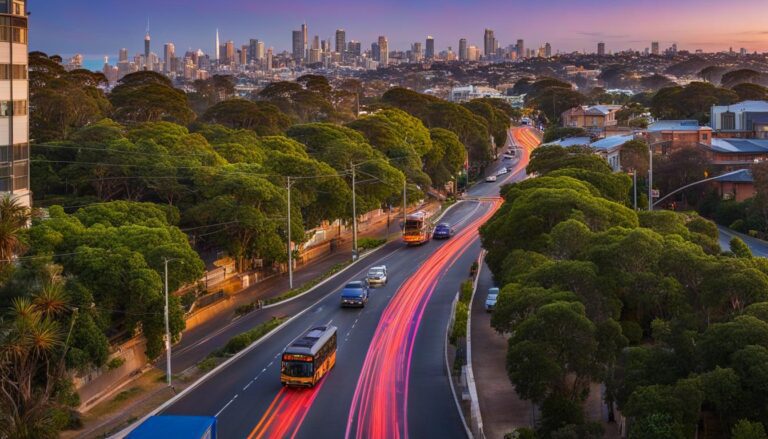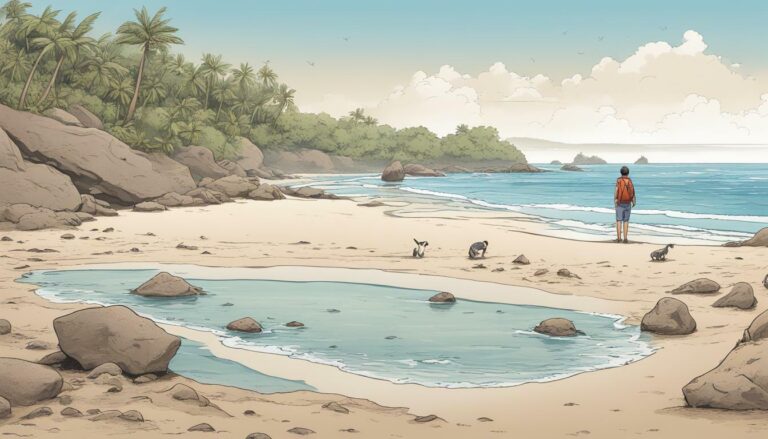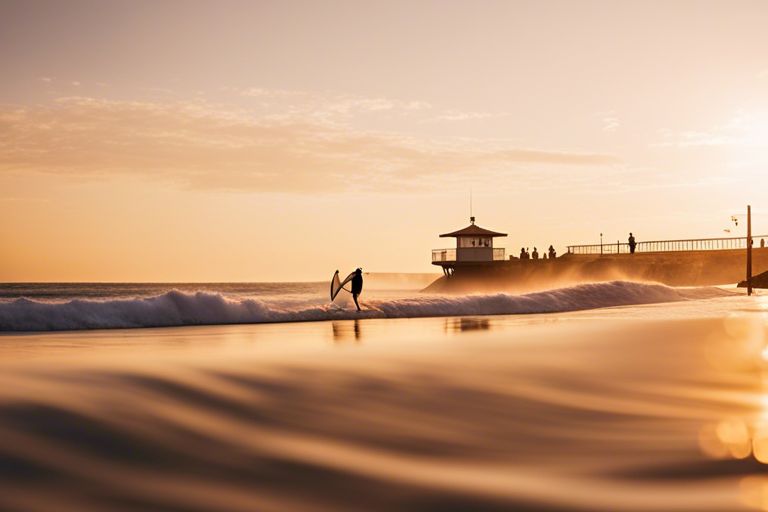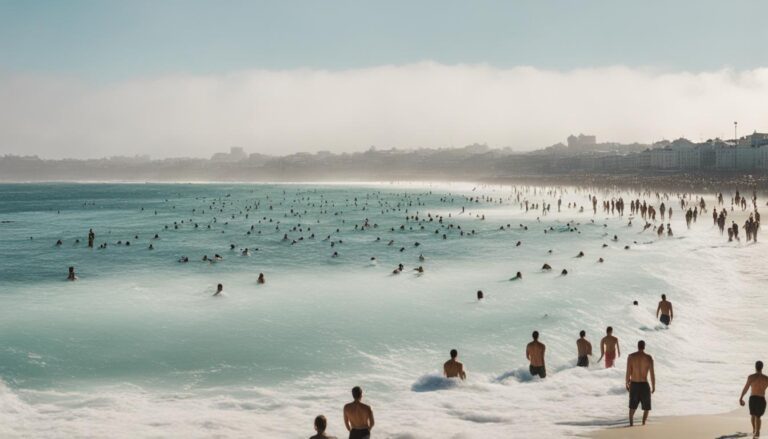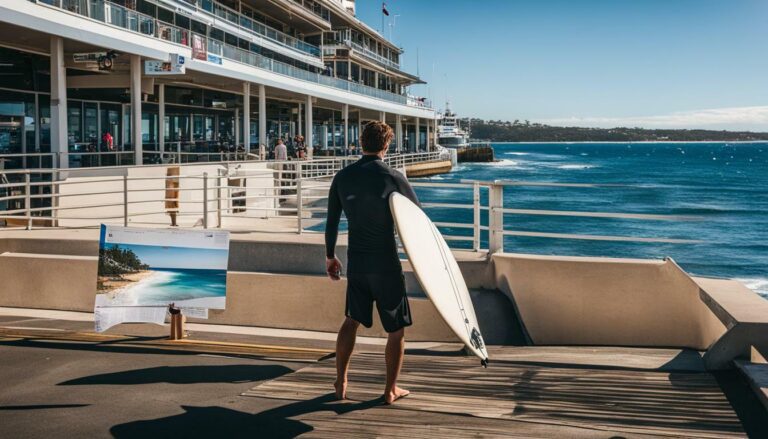Does Bondi Beach Have Shark Nets? Know Before You Visit
Bondi Beach, one of Sydney’s iconic beaches, may not have shark nets this summer, marking a potential break from a strategy that has been in place since World War II. The New South Wales government is currently considering whether to continue the use of these controversial shark nets. The decision will be made after consultation with eight coastal councils, including Waverley, which is home to Bondi Beach.
The debate surrounding shark nets at Bondi Beach has intensified in recent years, with environmentalists and animal welfare campaigners raising concerns over their effectiveness and impact on marine life. On the other hand, council members and government officials have emphasized the importance of maintaining safety measures to protect swimmers from potential shark attacks. This article will explore the ongoing debate over shark nets at Bondi Beach and the alternative measures being implemented to ensure swimmers’ safety while minimizing harm to marine life.
Key Takeaways
- Bondi Beach may not have shark nets this summer while the New South Wales government considers the use of alternative shark management strategies.
- The debate over shark nets at Bondi Beach revolves around concerns over their effectiveness and impact on marine life.
- The government has invested in alternative shark management strategies, including drones, smart drumlines, and sonar listening buoys, to ensure swimmers’ safety while minimizing harm to marine life.
Mayor of Waverley Opposes Shark Nets at Bondi Beach
The mayor of Waverley, Paula Masselos, has expressed her opposition to shark nets and advocated for alternative strategies. She believes that in the 21st century, there must be better options than these nets. One of the main concerns raised by environmental groups is the impact on marine life, as animals such as dolphins and turtles can become trapped and die in the nets. Masselos emphasized that the nets are only in the water for six months a year and are not tall or long enough to cover the entire beach, allowing sharks to potentially get caught on the beachside.
However, Sally Betts, a former mayor and longtime council member, believes that removing the nets without viable alternative deterrence and detection methods would be premature and potentially dangerous. She recalled a shark attack at Bondi Beach in 2009, where a surfer lost his arm, highlighting the importance of maintaining safety measures. Betts acknowledged that there are reservations among her fellow Liberal council members, but she anticipated that the Greens and Labor councilors would vote to remove the nets.
The debate over shark nets is not exclusive to Bondi Beach. Other coastal councils, including Northern Beaches, Central Coast, and Wollongong, are also advocating for the phasing out of shark nets. Lake Macquarie council has sought a government briefing on this year’s shark management program. On the other hand, the Sutherland shire council recognizes the nets as an important measure in reducing the risk of shark attacks at popular beaches like Cronulla.
Animal welfare campaigners have long argued against the effectiveness of shark nets and their impact on marine life. This sentiment has gained traction among politicians as well. Waverley council’s mayor, Paula Masselos, and Central Coast MP Adam Crouch both expressed their support for alternative strategies that prioritize safety without harming marine life. Masselos emphasized that shark nets are not an effective barrier and highlighted the detrimental impact on marine animals. The Department of Primary Industries, which owns and manages the nets, reported that in the 2021-2022 period, 376 marine animals were tangled in the nets, including 28 white sharks, 12 bull sharks, 11 tiger sharks, 149 non-target sharks, 130 rays, 40 turtles, one dolphin, and one humpback whale. Only a third of the caught animals were released alive.
In light of the concerns raised, the government has invested in alternative shark management strategies, including drones for increased aerial surveillance, smart drumlines, and listening stations. These measures aim to provide effective deterrence while minimizing harm to marine life. The government expects to release data on the number of marine animals caught and killed in shark nets soon.
The debate over shark nets is not limited to Australia. Similar discussions have taken place globally, with concerns raised about their impact on marine ecosystems. In Bondi Beach, the decision on whether to continue using shark nets will be made by the NSW government following the consultation processes with the coastal councils. While the future of shark nets at Bondi Beach remains uncertain this summer, the government and local councils are actively exploring and implementing alternative measures to ensure the safety of swimmers while minimizing harm to marine life. These measures include modern technologies such as drones, smart drumlines, and sonar listening buoys.
Support for Shark Nets from Former Mayor Sally Betts
However, Sally Betts, a former mayor and longtime council member, believes that removing the nets without viable alternative deterrence and detection methods would be premature and potentially dangerous. Betts acknowledged the reservations among her fellow Liberal council members but anticipates that the Greens and Labor councilors would vote to remove the nets that have been in place since World War II.
Bondi Beach, one of Sydney’s iconic beaches, may not have shark nets this summer as the New South Wales government considers whether to continue their use. The decision will be made after consultation with eight coastal councils, including Waverley, home to Bondi Beach. However, concern has been raised about the effectiveness of shark nets and their impact on marine life, leading to calls for alternative strategies.
Waverley’s mayor, Paula Masselos, has expressed her opposition to shark nets and advocated for alternative strategies. She believes that in the 21st century, there must be better options than these nets. One of the main concerns raised by environmental groups is the impact on marine life, as animals such as dolphins and turtles can become trapped and die in the nets. Masselos emphasizes that the nets are not tall or long enough to cover the entire beach, allowing sharks to potentially get caught on the beachside.
The debate over shark nets is not exclusive to Bondi Beach. Other coastal councils, including Northern Beaches, Central Coast, and Wollongong, are also advocating for the phasing out of shark nets. Lake Macquarie council has sought a government briefing on this year’s shark management program. On the other hand, the Sutherland shire council recognizes the nets as an important measure in reducing the risk of shark attacks at popular beaches like Cronulla.
Animal welfare campaigners have long argued against the effectiveness of shark nets and their impact on marine life, a sentiment that has gained traction among politicians as well. Waverley council’s mayor, Paula Masselos, and Central Coast MP Adam Crouch both expressed their support for alternative strategies that prioritize safety without harming marine life. The Department of Primary Industries, which owns and manages the nets, reported that in the 2021-2022 period, 376 marine animals were tangled in the nets, including 28 white sharks, 12 bull sharks, 11 tiger sharks, 149 non-target sharks, 130 rays, 40 turtles, one dolphin, and one humpback whale. Only a third of the caught animals were released alive.
In light of the concerns raised, the government has invested in alternative shark management strategies, including drones for increased aerial surveillance, smart drumlines, and listening stations. These measures aim to provide effective deterrence while minimizing harm to marine life. The government expects to release data on the number of marine animals caught and killed in shark nets soon.
The decision on whether Bondi Beach will have shark nets this summer is yet to be made, while the future of shark nets at Bondi Beach remains uncertain this summer. The government and local councils are actively exploring and implementing alternative measures to ensure the safety of swimmers while minimizing harm to marine life. These measures include modern technologies such as drones, smart drumlines, and sonar listening buoys.
Debate Over Shark Nets Extends to Other Coastal Councils
The debate over whether to continue using shark nets at Bondi Beach is not exclusive to this iconic beach alone. Other coastal councils, including Northern Beaches, Central Coast, and Wollongong, are also advocating for the phasing out of these controversial nets.
Lake Macquarie council has sought a government briefing on this year’s shark management program. On the other hand, the Sutherland shire council recognizes the nets as an important measure in reducing the risk of shark attacks at popular beaches like Cronulla.
“In the 21st century, there must be better options than these nets,”
The mayor of Waverley, Paula Masselos, has expressed her opposition to shark nets and advocated for alternative strategies. She believes that in the 21st century, there must be better options than these nets. One of the main concerns raised by environmental groups is the impact on marine life, as animals such as dolphins and turtles can become trapped and die in the nets. Masselos emphasized that the nets are only in the water for six months a year and are not tall or long enough to cover the entire beach, allowing sharks to potentially get caught on the beachside.
Animal welfare campaigners have long argued against the effectiveness of shark nets and their impact on marine life. This sentiment has gained traction among politicians as well. Waverley council’s mayor, Paula Masselos, and Central Coast MP Adam Crouch both expressed their support for alternative strategies that prioritize safety without harming marine life. Masselos emphasized that shark nets are not an effective barrier and highlighted the detrimental impact on marine animals. The Department of Primary Industries, which owns and manages the nets, reported that in the 2021-2022 period, 376 marine animals were tangled in the nets, including 28 white sharks, 12 bull sharks, 11 tiger sharks, 149 non-target sharks, 130 rays, 40 turtles, one dolphin, and one humpback whale. Only a third of the caught animals were released alive.
In light of the concerns raised, the government has invested in alternative shark management strategies, including drones for increased aerial surveillance, smart drumlines, and listening stations. These measures aim to provide effective deterrence while minimizing harm to marine life. The government expects to release data on the number of marine animals caught and killed in shark nets soon.
Concerns Over Shark Nets’ Impact on Marine Life
Animal welfare campaigners have long argued against the effectiveness of shark nets and their impact on marine life. This sentiment has gained traction among politicians as well. Waverley council’s mayor, Paula Masselos, and Central Coast MP Adam Crouch both expressed their support for alternative strategies that prioritize safety without harming marine life. Masselos emphasized that shark nets are not an effective barrier and highlighted the detrimental impact on marine animals. The Department of Primary Industries, which owns and manages the nets, reported that in the 2021-2022 period, 376 marine animals were tangled in the nets, including 28 white sharks, 12 bull sharks, 11 tiger sharks, 149 non-target sharks, 130 rays, 40 turtles, one dolphin, and one humpback whale. Only a third of the caught animals were released alive.
It is not just the number of fatalities that is concerning. Animal welfare campaigners argue that the nets can have a devastating impact on marine ecosystems, disrupting food chains and harming other aquatic animals. The nets can also create a false sense of safety, leading to complacency among beachgoers and potentially increasing the risk of shark attacks.
Exploring Alternatives to Shark Nets
In light of the concerns raised, the government has invested in alternative shark management strategies, including drones for increased aerial surveillance, smart drumlines, and listening stations. These measures aim to provide effective deterrence while minimizing harm to marine life. The government expects to release data on the number of marine animals caught and killed in shark nets soon.
The move towards alternative strategies has gained support from animal welfare campaigners and politicians who recognize the impact of shark nets on marine ecosystems. While there is no one-size-fits-all solution, the government is committed to exploring a range of options to safeguard swimmers while preserving marine life.
One promising alternative is drone technology, which provides real-time data on shark sightings and beach conditions. Smart drumlines, which utilize technology to capture and tag sharks before releasing them further out to sea, have also shown promising results. Sonar listening buoys, which detect the presence of large sharks, provide another form of early warning.
These alternatives are an important step towards reducing the dependence on shark nets. While they may not be a perfect solution, they represent a progressive and proactive approach to shark management. By investing in research and development, the government is committed to finding the most effective and sustainable solutions to protect swimmers and marine life alike.
Conclusion
In conclusion, the decision on whether Bondi Beach will have shark nets this summer is yet to be made. The controversy surrounding shark nets revolves around concerns about their effectiveness and impact on marine life. While some council members advocate for the removal of nets, highlighting their limitations and harm caused to marine animals, others emphasize the importance of maintaining safety measures until viable alternatives are in place. The ongoing debate reflects the need to balance the protection of swimmers with the preservation of marine ecosystems.
FAQ
Q: Does Bondi Beach currently have shark nets?
A: The decision on whether to continue using shark nets at Bondi Beach this summer is still pending.
Q: What is the mayor of Waverley’s stance on shark nets?
A: The mayor, Paula Masselos, opposes the use of shark nets and advocates for alternative strategies.
Q: Who supports the use of shark nets at Bondi Beach?
A: Former mayor Sally Betts believes that removing the nets without viable alternatives would be premature and potentially dangerous.
Q: Is the debate over shark nets limited to Bondi Beach?
A: No, other coastal councils, including Northern Beaches, Central Coast, Wollongong, and Lake Macquarie, are also discussing the phasing out of shark nets.
Q: What are the concerns about shark nets’ impact on marine life?
A: Animal welfare campaigners and politicians raise concerns about the effectiveness of shark nets and their harm to marine animals.
Q: Are there alternative measures being explored?
A: Yes, the government has invested in alternative strategies such as drones, smart drumlines, and sonar listening buoys.
Q: What is the conclusion of the ongoing debate?
A: The decision on shark nets at Bondi Beach is yet to be made, but efforts are being made to balance swimmer safety with the preservation of marine ecosystems.
Source Links
- https://www.theguardian.com/australia-news/2023/jul/29/bondi-could-face-summer-without-shark-nets-as-sydney-councils-push-for-alternatives
- https://www.theguardian.com/environment/2022/aug/18/mayor-calls-for-end-of-shark-nets-at-iconic-bondi-beach
- https://www.9news.com.au/national/sharks-spotted-inside-nets-at-bondi-reignite-debate-about-control-measures-jason-iggleden/6972cc7a-d814-48ee-aa76-7ed0dd1c42f0


